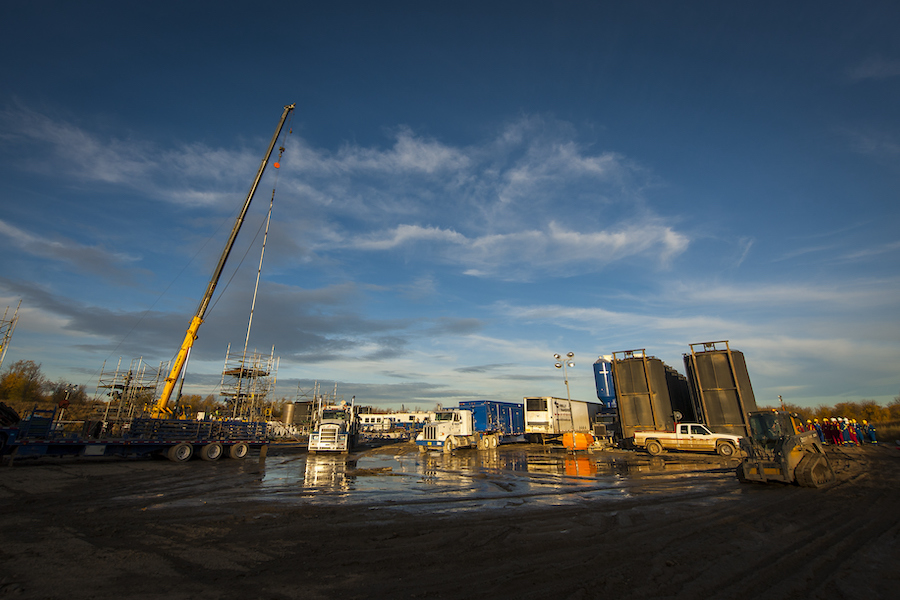

Canada poised to benefit from global underinvestment in energy
Zeba Mirza of Foyston, Gordon & Payne says Canada can benefit from the complacency that has left the world without excess energy capacity
- Featuring: Zeba Mirza
- January 24, 2023 January 24, 2023
- 13:01
- From: Foyston, Gordon & Payne

(Runtime: 5:00. Read the audio transcript.)
**
Canada is positioned to benefit from the complacency that has left the world without excess energy capacity, says Zeba Mirza, senior research analyst with Foyston, Gordon & Payne.
Mirza said depleted global energy stores and broken oil-and-gas supply chains could become a major tailwind for the Canadian oil industry, which has a wealth of long-life, low-decline assets.
“If you’re looking for investment options, I think the Canadian energy industry offers great value,” she said.
Speaking on the Soundbites podcast, Mirza said the next 10 years will not be like the last 10.
“I think we’re seeing a seminal change in Russian oil production. It has likely hit the peak, and it is now going to be declining,” she said. “This is a capital-intensive industry. It takes a lot of cash and it takes technology to produce that oil. And the big Western companies have all withdrawn from that area.”
And while she does not expect ESG concerns to abate, she expects investors to be more pragmatic about energy opportunities.
“We’re seeing a lot of smart investors — like Berkshire Hathaway, big pension funds like Ontario Teachers — saying that they’re open to investing in commodities,” she said. “We should want energy exposure in our portfolios.”
The case for Canadian oil companies keeps getting better, Mirza said. The field features strong management teams, and long-term assets with low capital requirements generating more free cash flow than most other hydrocarbon assets.
“The sector doesn’t need US$100/barrel oil prices. They’re generating significant free cash flow at US$70 and US$80,” she said. “All the free cash flow we got in [2022] actually went to balance sheets. But 2023 will be a year of inflection, where we’ll see increasing free cash welcome to shareholders.”
She also pointed out that energy tends to be an effective hedge against inflation.
“When I look at these factors, I think the Canadian industry as a whole is very well positioned,” she said. “I see the valuation discrepancy. We are cheap compared to the U.S. We offer twice as much in dividends as the U.S. We have more cash than the U.S. Honestly, I think right now is the best time to invest in Canada.”
European crisis
Two decades of unaccommodating and pro-environmental energy policy have left Canada unable to help Europe with its energy needs during the biggest energy crisis in recent memory, Mirza said.
“It’s really sad because we are the fourth largest oil producer in the world. We have the third largest oil reserves in the world, but our pipelines are full,” she said. “We can’t send more oil anywhere.”
Mirza said there have been only two successful pipeline projects in the last dozen years — the base Keystone line in 2011, and the Enbridge Line 3 expansion in 2021.
“We cancelled Northern Gateway in 2016. We cancelled Energy East in 2017. Keystone XL was cancelled 2021. So, the only new pipeline expansion we’re building is the Trans Mountain expansion, and that’s not coming online until late 2023, or early 2024,” she said.
Furthermore, Canada does not yet have liquefied natural gas (LNG) plants operating on the west coast.
“Shell is building Phase 4 of LNG Canada, but look at the hoops they’ve had to jump through,” she said. “They proposed the project in 2012, they got approval and then took FID [final investment decision] in 2018. And it will be 2025 before we actually see production. So, in the short term we really can’t do anything. It’s really disappointing.”
The world, she pointed out, is desperate for new supplies of energy, better supply chains, and excess volume.
“A decade of underinvestment has hit global spare capacity,” she said. “We do not have any.”
**
This article is part of the Soundbites program, sponsored by Canada Life. The article was written without sponsor input.
